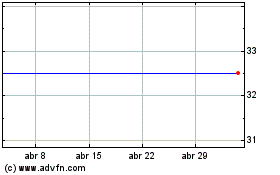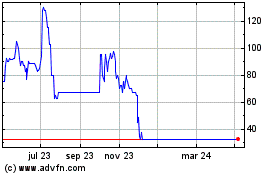TIDMTNT
Tintra PLC
08 June 2022
8 June 2022
TINTRA PLC
("Tintra", the "Group" or the "Company")
Recent Press Articles
"The importance of financial inclusion"
"Tintra PLC cements banking license strategy across four
continents"
Richard Shearer, Group CEO, recently authored an article on "The
importance of financial inclusion for emerging markets", which was
published in Finance Monthly, a global publication delivering news,
comment and analysis to those at the centre of the corporate
sector. The article can be viewed online at:
https://www.finance-monthly.com/2022/06/the-importance-of-financial-inclusion-for-emerging-markets/
A full copy of the text can also be found below.
In addition, an article regarding the Company's strategy was
recently published in Finextra, the leading independent newswire
and information source for the worldwide financial technology
community:
https://www.finextra.com/pressarticle/92809/tintra-firms-up-banking-licence-strategy-across-four-continents?utm_medium=dailynewsletter&utm_source=2022-6-1&member=106628
For further information, contact:
Tintra PLC
(Communications Head)
Hannah Haffield
h.haffield@tintra.com
Website www.tintra.com 020 3795 0421
Allenby Capital Limited
(Nomad, Financial Adviser & Broker)
John Depasquale / Nick Harriss / Vivek
Bhardwaj 020 3328 5656
The importance of financial inclusion
Discussions of the pandemic are starting to feel increasingly
passé - but this sense that the worst is behind us, or that the
issue is no longer worth discussing, doesn't account for the
ongoing global impacts of the pandemic, particularly on emerging
markets ("EM's").
Or, to put it another way, when Western commentators say that
"the worst is behind us," they place a real emphasis on "us".
Just a glance at a recent report from the World Bank is enough
to clarify that, in terms of pandemic recovery, "advanced economies
and emerging market and developing economies are on two different
flight paths," with advanced economies on track to return to
pre-pandemic trends by next year while EM's find themselves "flying
low" and vulnerable to further "headwinds".
This huge economic disparity lends an extra degree of urgency to
discussions surrounding economic inclusion, a process which -
according to groups like the UN's Sustainable Development Goals
organisation - can help to create jobs, stimulate business
activity, and improve growth for individuals, companies, and
countries across the emerging world.
However, while such discussions are important and necessary, we
need to be careful about how we frame the subject of EM financial
inclusion.
After all, though it does absolutely help to accelerate growth,
EM's are not just helpless victims, and attempts to improve
economic inclusion aren't moral crusades or exercises in charity -
if nothing else, there's a robust business case for improving
access to the credit and cross-border payments services that young,
tech-savvy EM populations need to continue thriving without
punitive restrictions.
What is economic inclusion?
In brief, economic or financial inclusion refers to ensuring
that people and organisations have access to the financial services
(or products) that meet their needs.
These, according to the World Bank , can include "transactions,
payments, savings, credit and insurance" - though I would place
transaction accounts at the top of that list.
It might be tempting, on encountering economic inclusion, to
assume that it's an idea to be directed at unbanked people - that
is, people who have no bank accounts whatsoever and who deal
entirely in cash.
And, to be clear, there are still a lot of unbanked people in
the world today - to the tune of 1.7 billion, in fact, according to
the latest Global Findex Report .
Equally, though, economic inclusion is about widening access to
financial services - a slightly more pervasive issue that can wear
different masks.
Unbanked or underbanked?
Let's say, for example, that a person from an EM like Kenya
wants to set up a business - they're digitally literate; they
understand the services and platform they need; and they're
completely capable of procuring those services.
That person may well encounter a problem, however: not because
they're technically unable to access a digital platform, but
because the international nature of the platform means any
subscriptions made by the Kenyan business owner will be subject to
the often punitive, regulation-borne fees involved in cross-border
payments to and from EMs.
This isn't the same as being unbanked - the person in this
scenario may well have a personal transaction account, for example
- but the practical result is the same: an EM country is denied an
economy-boosting new business, and an individual can't pursue their
livelihood without a huge amount of hassle.
The many motives for strong inclusion
For me, there is a clear moral dimension to ensuring that
financial inclusion is as widespread as possible.
Digital financial inclusion, especially, is capable of lifting
people out of poverty and, as I've mentioned, improve the economic
prospects of EM countries more broadly.
That doesn't mean Western financial institutions should spend
too much time patting themselves on the backs for any moves towards
inclusion - after all, Western regulatory pressures play a huge
role in the underbanked status of EM countries.
Besides, it would be disingenuous to frame financial inclusion
as some charitable act to be preached about when, in fact, there's
a robust business case to be made in its favour.
Commentators like McKinsey have noted that this market consists
of around two billion people (and 200 million small businesses) who
are currently underbanked and the benefit is clear for service
providers prepared to embrace potentially lucrative new revenue
streams in a secure compliance driven environment- for example by
inserting themselves into the innumerable micropayments that come
hand-in-hand with the frictionless ease of digital
transactions.
Inclusive futures
The motives and outcomes for financial inclusion are, to some
extent, in the eye of the beholder.
For EM countries facing post-pandemic economic deceleration,
though, the former is perhaps less significant than the latter.
Whether such efforts are viewed in terms of a mechanism for
reducing poverty; stimulating economic growth; correcting Western
regulatory bias; or as a canny business move, the result is that
once we get to a point where we focus on establishing financial
innocence rather than looking for financial guilt we get to a point
that individuals and the market generally will only benefit both
emerging and more established markets with the myriad opportunities
that will result.
ENDS
Richard Shearer, CEO of Tintra
https://tintra.com
This information is provided by Reach, the non-regulatory press
release distribution service of RNS, part of the London Stock
Exchange. Terms and conditions relating to the use and distribution
of this information may apply. For further information, please
contact rns@lseg.com or visit www.rns.com.
Reach is a non-regulatory news service. By using this service an
issuer is confirming that the information contained within this
announcement is of a non-regulatory nature. Reach announcements are
identified with an orange label and the word "Reach" in the source
column of the News Explorer pages of London Stock Exchange's
website so that they are distinguished from the RNS UK regulatory
service. Other vendors subscribing for Reach press releases may use
a different method to distinguish Reach announcements from UK
regulatory news.
RNS may use your IP address to confirm compliance with the terms
and conditions, to analyse how you engage with the information
contained in this communication, and to share such analysis on an
anonymised basis with others as part of our commercial services.
For further information about how RNS and the London Stock Exchange
use the personal data you provide us, please see our Privacy
Policy.
END
NRAKZGGVKRNGZZG
(END) Dow Jones Newswires
June 08, 2022 02:01 ET (06:01 GMT)
Tintra (LSE:TNT)
Gráfica de Acción Histórica
De Mar 2024 a Abr 2024

Tintra (LSE:TNT)
Gráfica de Acción Histórica
De Abr 2023 a Abr 2024
